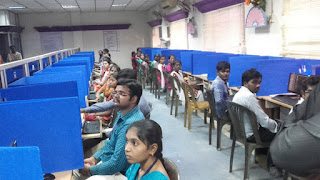Anchoring: 1
I believe my life of start-ups is over now. There are personal reasons behind it - this has forced me to rethink my priorities - but this is as much triggered by professional considerations. I have come to realise the essentially speculative nature of start-ups, and also that in the industry I have chosen to be in, its unsuitability. Speculation may be permissible and even productive in other industries, particularly where the customers are also venturesome, as in consumer technology; but in education, there is an added layer of responsibility, which speculators disregard. I would call it an 'alignment problem', just as in machine learning, where the ways of doing business and the desireable objectives may be in conflict with the expectations of its intended customers and socially desireable outcomes. This objection is only to the private higher education, however. The idea of higher education is enmeshed in the modern, middle-class-dominated social structure. The degree is the...

